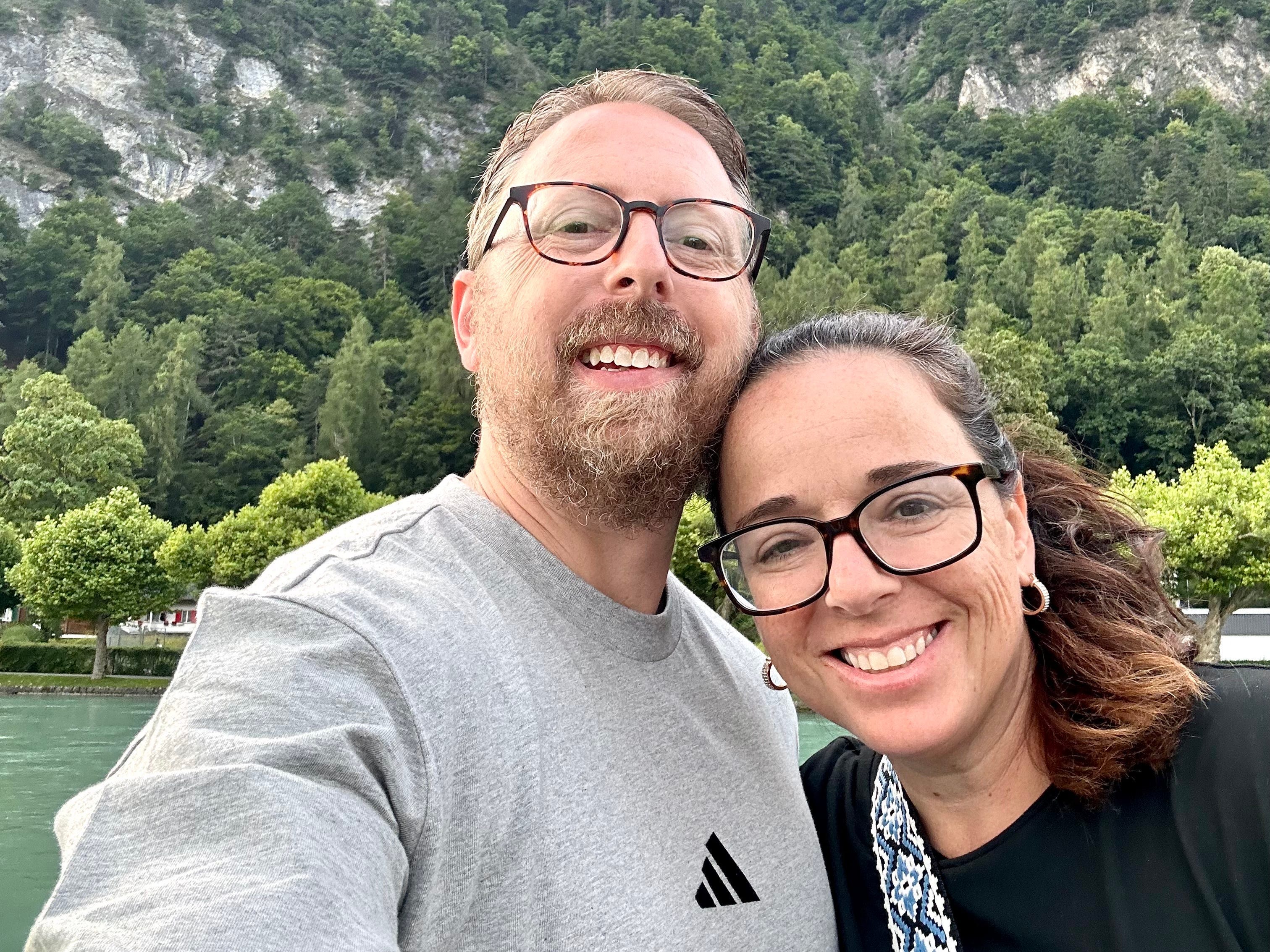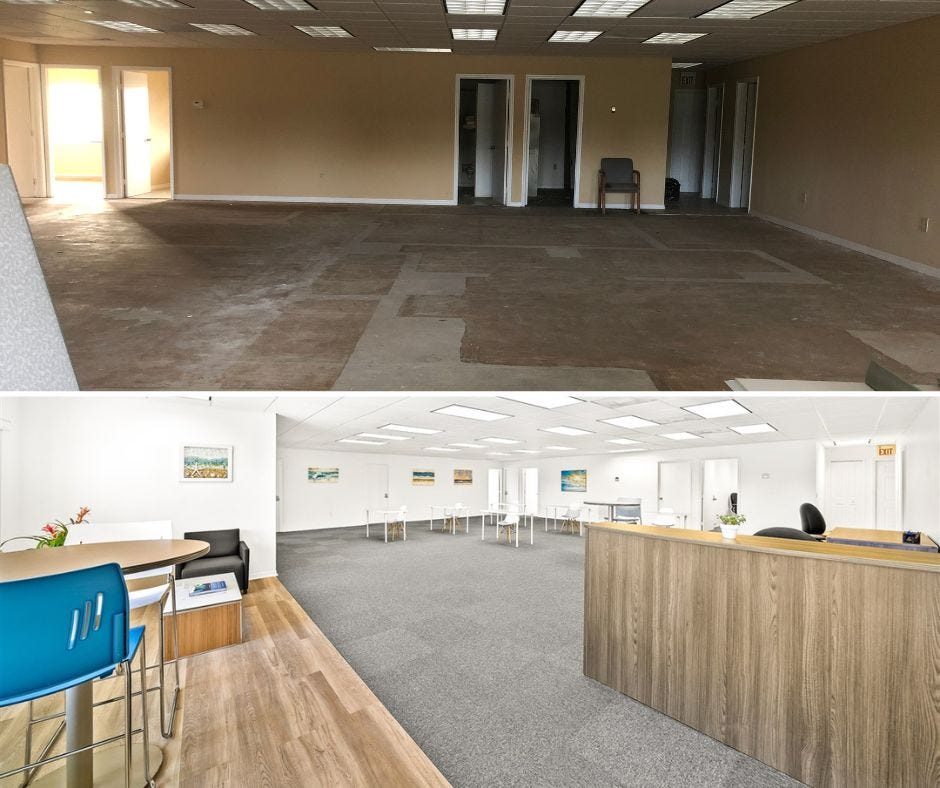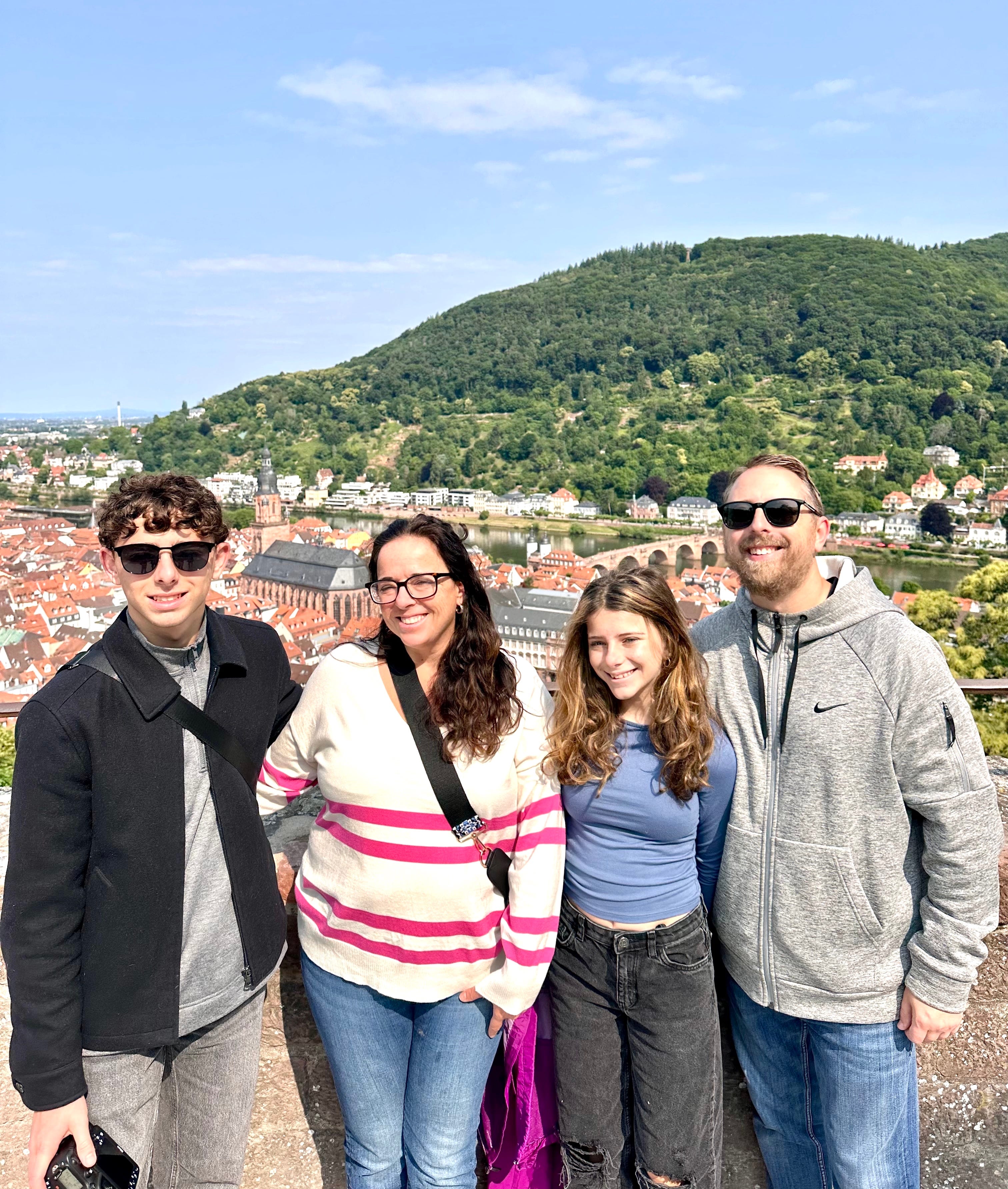
Ted and Jamie Garber
- Ted and Jamie Garber are aiming for financial independence by building diverse income streams.
- One stream is real estate: Their 28 rental units earn them six figures in relatively passive income.
- Their rental strategy includes buying undervalued properties and ensuring immediate cash flow.
Ted and Jamie Garber want to achieve some form of FIRE — financial independence, retire early — and they’re building multiple revenue streams to do so.
“We want to be work optional,” Ted, who runs a digital advertising agency, told Business Insider. “We have like nine different retirement scenarios we can pick from, depending on what we want to do. Right now, we’re undecided. We’re both healthy, we’re both young enough, so we don’t have to choose.”
The Florida-based couple runs an e-commerce business selling watch straps, generates dividend portfolio income, and has built a real estate portfolio of 28 units across 15 properties that earn them six-figures in “mostly passive income,” said Ted.
He estimates that he and Jamie spend less than 10 hours a month on real estate-related activities. Business Insider confirmed their property ownership through the Brevard County Property Appraiser and reviewed lease agreements with several of their tenants.
Jamie, an attorney by trade who left the corporate world years ago to raise their two kids, does most of the legal and administrative work, from purchase agreements to writing the leases, while Ted manages the tenant-facing activities.
The Garbers, who are in their early 40s and closed on their most recent property in September 2025, say they’re “still in growth mode.”
They explain how they got started in real estate and have grown from one to fifteen properties over the last five years.
Their first deal: ‘House hacking’ an office space
In early 2020, as Ted was running his ad agency out of a rented office space, Jamie happened to find a nearby commercial space — an old call center with multiple offices and a conference room — that had been sitting vacant for a few years. The couple ran the numbers and realized that, if they bought the property, the amount that Ted’s company was paying in rent would cover the entire mortgage. But he only needed a fraction of the space; if they could rent the remaining space to other businesses, they could turn a significant profit.

Courtesy of Ted and Jamie Garber
The couple jumped at the chance, bought the building, and spent about two months transforming it into a WeWork-style coworking space.
“We essentially started house hacking, but with a commercial property,” said Ted.
Buying and renovating a commercial space was an ambitious entry into real estate investing.
“It was just a blank canvas — concrete floors, old paint, old kitchen, old bathrooms — and we had never done a project like that before, so we picked a general contractor who ended up being horrible,” said Ted. “Communication was bad, he just wasn’t very good, and we ended up befriending the subs that he hired, and they worked to finish the project. We learned through that process and, unbeknownst to us, started developing our Rolodex of people that we could call for projects for rehab.”
Ted and Jamie’s specific backgrounds helped make the project a success. Jamie took the lead on the legal structuring, while Ted used his marketing expertise to find tenants.
“We were able to immediately fill up this space,” he said, meaning they were profitable from day one.
It helped that they were filling a need. Prior to their business, which they named Coastal Collaborative, there wasn’t a coworking space in their area.
The timing — they opened right around when COVID hit — was also right.
“People needed remote offices,” said Ted. “And it really took off.”
Expanding to 28 units that do six-figures in relatively passive income
The Garbers’ first deal was such a success that they purchased another unit in the same commercial building in 2022 and converted it into a second coworking space.
They also gradually started adding residential properties, including condos, townhomes, and single-family homes, to their portfolio.
“Our risk tolerance is still low, comparatively,” said Ted. “We don’t do OPM — other people’s money — we don’t do groups, we don’t do syndication. It’s all on our own.”

Courtesy of Ted and Jamie Garber
Their residential investment properties are all long-term rentals. They won’t buy unless they’re confident the unit will generate cash flow, said Ted: “Each rental needs to shed cash flow immediately and, on average, pay back our initial investment within three to six years.”
They’ve used several different strategies to ensure positive cash flow. One is the 1% rule of real estate, which suggests that to create positive cash flow, the monthly rent of your property should equal at least 1% of the purchase price.
“So, if you’re looking at a condo that is $120,000, you need to be able to rent it for $1,200 a month,” said Ted, noting that it’s become more difficult in the past couple of years to satisfy this rule with rising interest rates, insurance rates, and condo fees.
They also follow the principle that you “make money on the buy,” said Ted. “Negotiate and make sure you get a good deal from the get-go. Because, if you do need to exit, if you bought at the right price, then you have that ability to get out.”
Jamie added that their niche is undervalued properties that other buyers may pass on: “We would look for things that had been sitting for a while — maybe the marketing wasn’t very good or it needed a cosmetic renovation.”
Once they’ve completed renovations and found a tenant, their rentals are fairly hands-off.
Coastal Collaborative members have access to an app that acts as a key, allowing them to come and go as they please, so “it’s kind of self-sustaining with minimal effort from us,” said Jamie.
They use two different software programs — Avail Property Management for their residential units and Wave Accounting for their commercial units — that offer everything from automated billing to tenant-facing customer service features.
“It’s as automated as it can be,” said Ted, which allows them to travel whenever, stress-free. “We can run this remotely. We do some of the manual stuff for these offices here, but we can always outsource that at a low cost. We spend a couple of weeks every summer out of the country, and we’ve been able to do that without a hiccup for the last five years.”
Read the original article on Business Insider
The post A couple earns 6 figures in ‘mostly passive income’ from their rental portfolio. How they expanded to 28 units in 5 years. appeared first on Business Insider.




